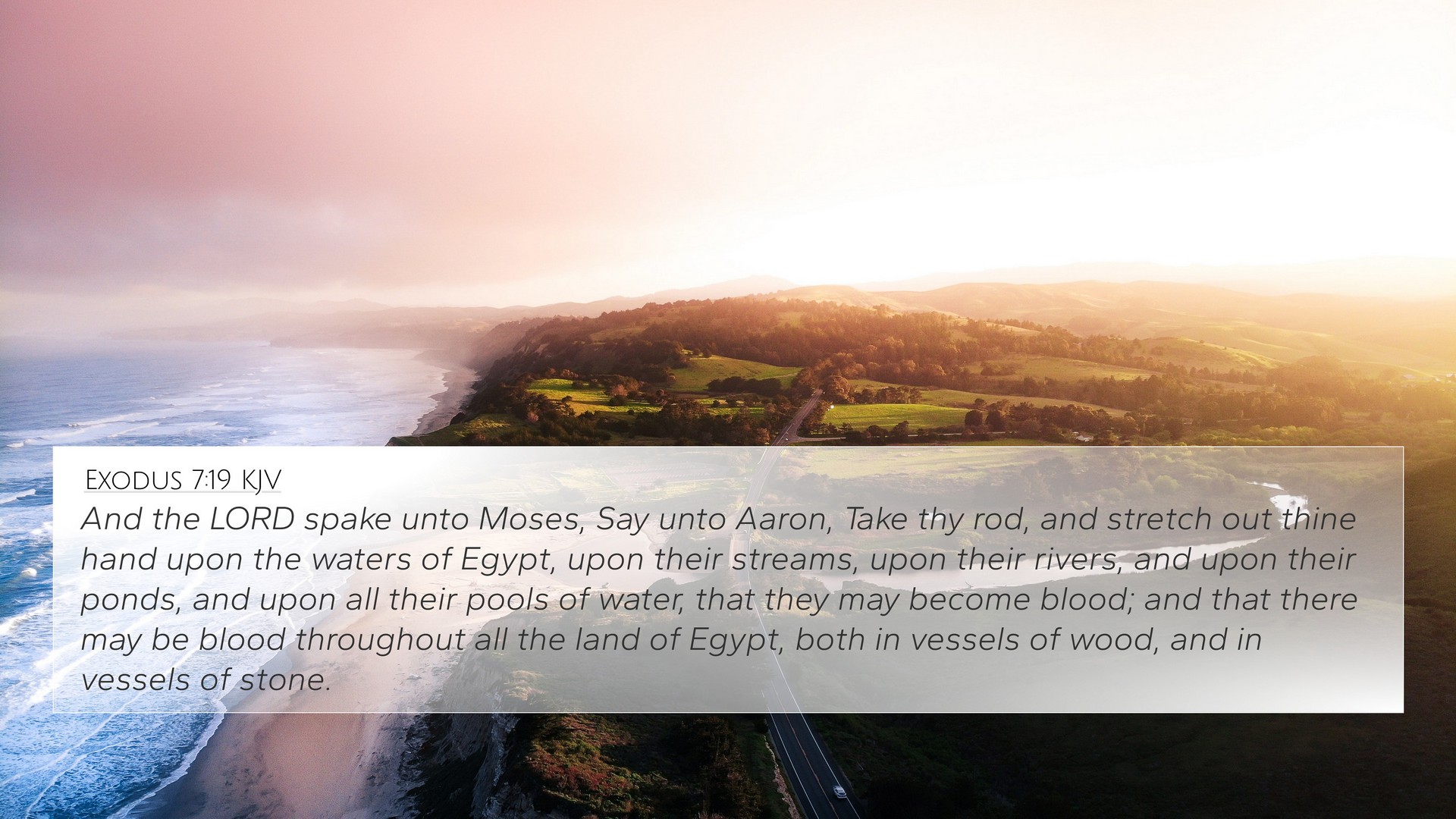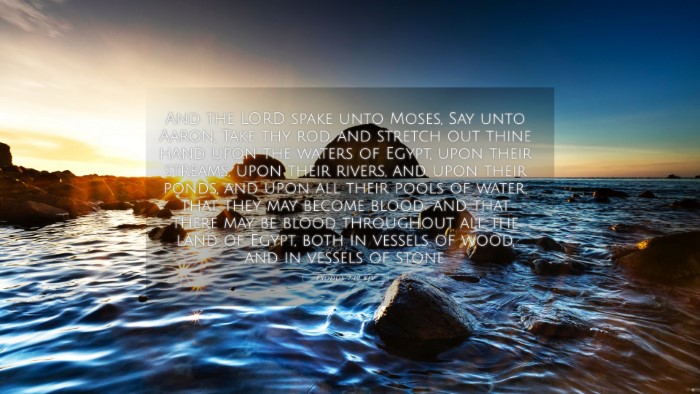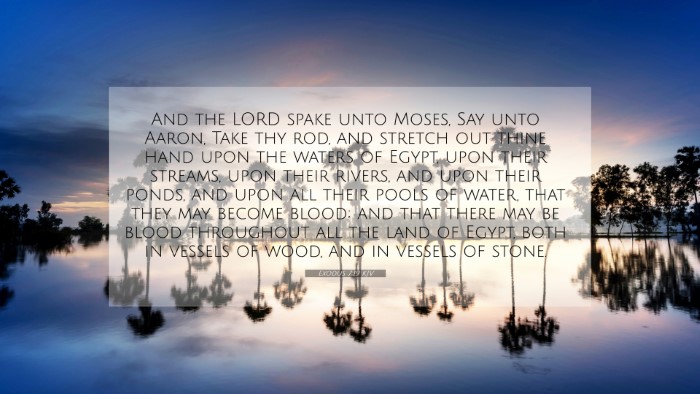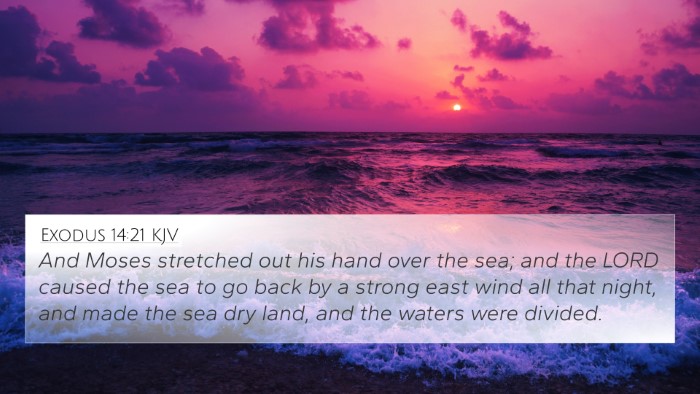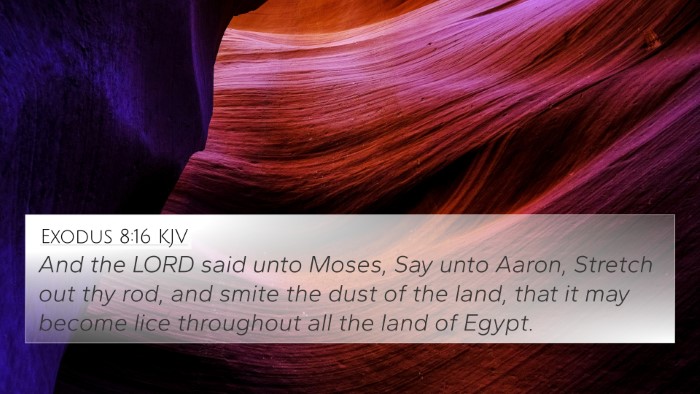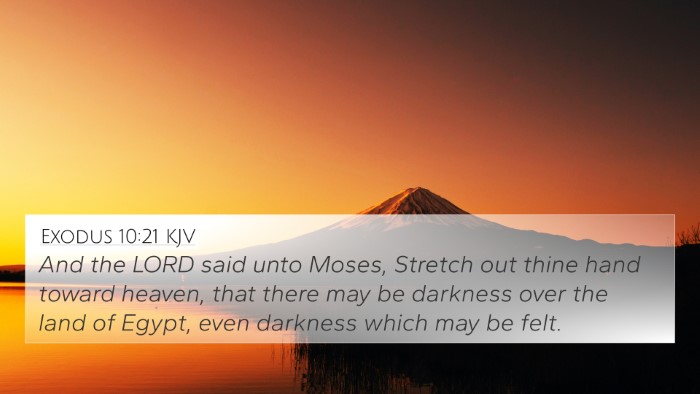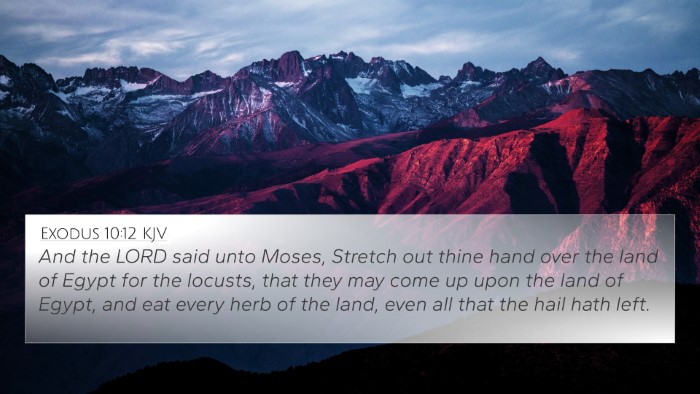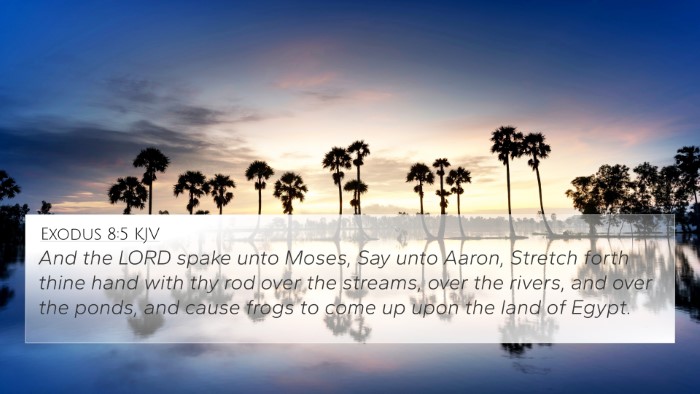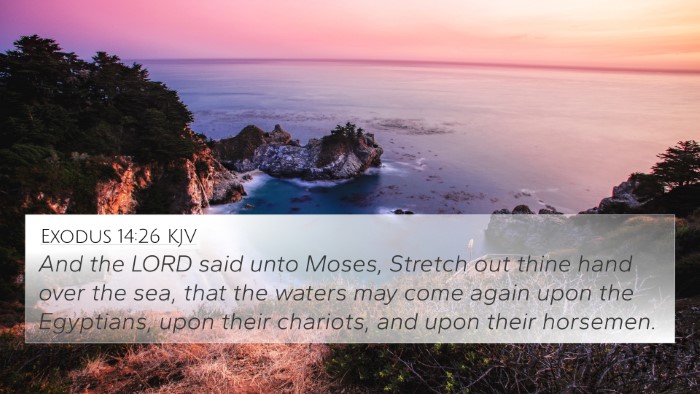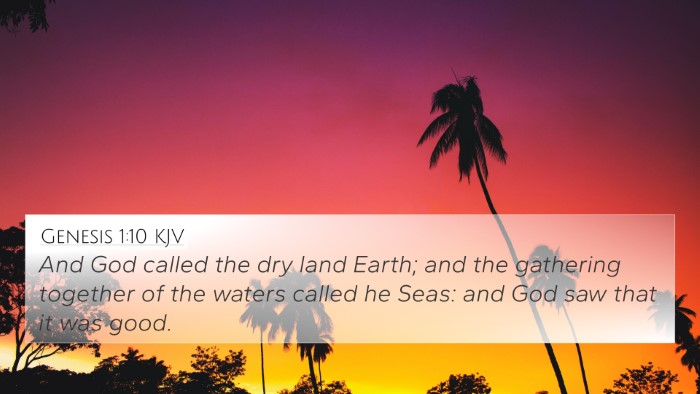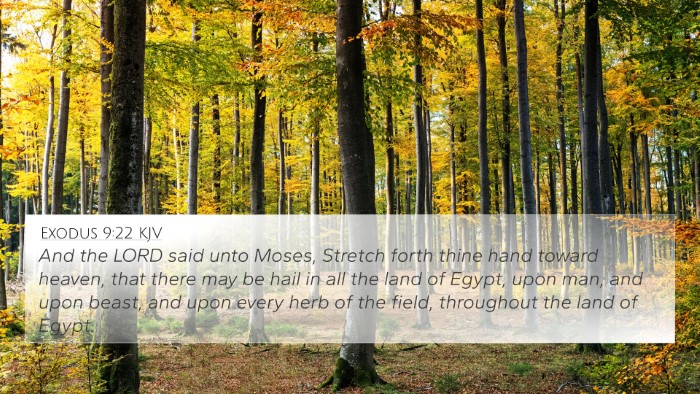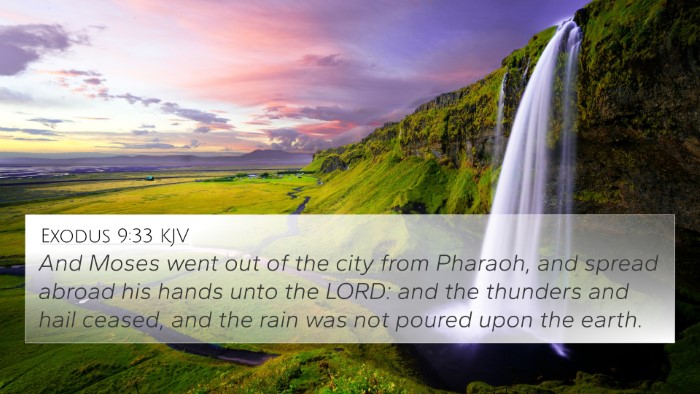Understanding Exodus 7:19
Exodus 7:19 states, "And the Lord spake unto Moses, Say unto Aaron, Take thy rod, and stretch out thine hand upon the waters of Egypt, upon their streams, upon their rivers, and upon their ponds, and upon all their pools of water, that they may become blood; and that there may be blood throughout all the land of Egypt, both in vessels of wood, and in vessels of stone."
Summary of Insights
This verse is pivotal as it demonstrates God's power over nature and His ability to pronounce judgment upon Egypt through Moses and Aaron. The transformation of water into blood serves as a direct confrontation against the Egyptian gods, particularly the Nile, which was worshiped. Public domain commentaries provide various insights that together highlight the significance of this event.
Context and Meaning
This act occurs in the context of God’s intention to liberate the Israelites from slavery. By using Moses and Aaron to execute His commands, God is demonstrating His sovereignty and ability to dominate the elements of creation. The presence of blood throughout the land serves not only as an act of judgment but also as a means to compel Pharaoh to heed God's message of liberation for His people.
- Matthew Henry Commentary: Henry emphasizes the theme of God’s authority, illuminating how this plague serves as a sign aimed at demonstrating the impotence of Pharaoh and the power of the God of Israel. The rod symbolizes divine authority, validating Moses and Aaron as chosen instruments of God's will.
- Albert Barnes Commentary: Barnes discusses the significance of the water turning to blood as a direct fulfillment of God's prophetic warning and a precursor to further plagues. He notes the role of Aaron as the spokesperson, reinforcing the collaborative leadership between Moses and Aaron in executing God's commands.
- Adam Clarke Commentary: Clarke highlights the symbolic interpretations of blood in biblical literature, including themes of life, death, and covenant. He connects this act to themes of rebellion against God and His ensuing judgment, which is critical for understanding God's seriousness regarding obedience.
Key Themes Explored
This verse encapsulates several significant themes:
- Sovereignty of God: The transformation of water into blood signifies God's dominion over nature and His ability to execute judgment.
- Judgment: The act serves as a warning and a sign of impending judgment, representing God's call for repentance from the Egyptians.
- Faith and Obedience: Moses and Aaron's obedience to God's command shows the importance of faithfulness in carrying out divine instructions.
- Prophetic Action: The event foreshadows a series of miracles that reveal God's power and serve as harbingers of liberation for His people.
- Interplay between Revelation and Response: This act initiates a dialogue between God and Pharaoh, where the latter's responses will dictate subsequent divine actions.
Cross References Related to Exodus 7:19
This verse is connected to various other scriptures that enhance its understanding and significance through cross-referencing:
- Exodus 4:1-5: Moses' staff turning into a serpent, illustrating God's power.
- Exodus 7:14-18: Contextualizing the significance of the Nile as a focal point of the judgment.
- Psalm 78:44: References God's power shown in the plagues over Egypt.
- Revelation 8:8-11: A parallel plague where waters are turned into blood, linking judgment themes.
- John 2:1-11: Jesus turning water into wine, showcasing the transformation motif in divine contexts.
- Isaiah 19:5-7: Prophetic warnings concerning Egypt, noting the futility of its gods.
- Numbers 20:11: Another instance of Moses striking a rock for water, exploring themes of obedience and disobedience.
Thematic Bible Verse Connections
Understanding Exodus 7:19 benefits from thematic connections with other scripture surrounding themes of divine judgment, power, and obedience:
- The consequences of disobedience (Genesis 6:5-7).
- God’s power over nature (Psalm 29:3-4).
- The call for repentance (2 Chronicles 7:14).
- The significance of blood in the covenant (Hebrews 9:22).
Tools for Bible Cross-Referencing
For deeper understanding and study, several tools can enhance one's Bible study experience:
- Bible concordances for locating themes and messages.
- Bible cross-reference guides for thematic studies.
- Contextual resources like commentaries to explore deeper meanings.
- Online tools for scripture search and comparison.
- Study Bibles which include footnotes linking related verses.
How to Use Bible Cross-References
Using cross-references effectively involves:
- Identifying connections that provide broader context.
- Exploring the New Testament and Old Testament links to discern continuity in God's message.
- Conducting comparative studies on similar themes across different scriptures.
Conclusion
Exodus 7:19 is rich with meaning that unfolds when explored through various commentaries and cross-references. Understanding this verse not only highlights God's sovereignty but also invites deeper reflection on themes such as faith, obedience, and the serious nature of divine judgment. Utilizing tools for Bible cross-referencing enhances one's ability to see the interwoven nature of scripture, paving the way for a more profound relationship with biblical texts.
